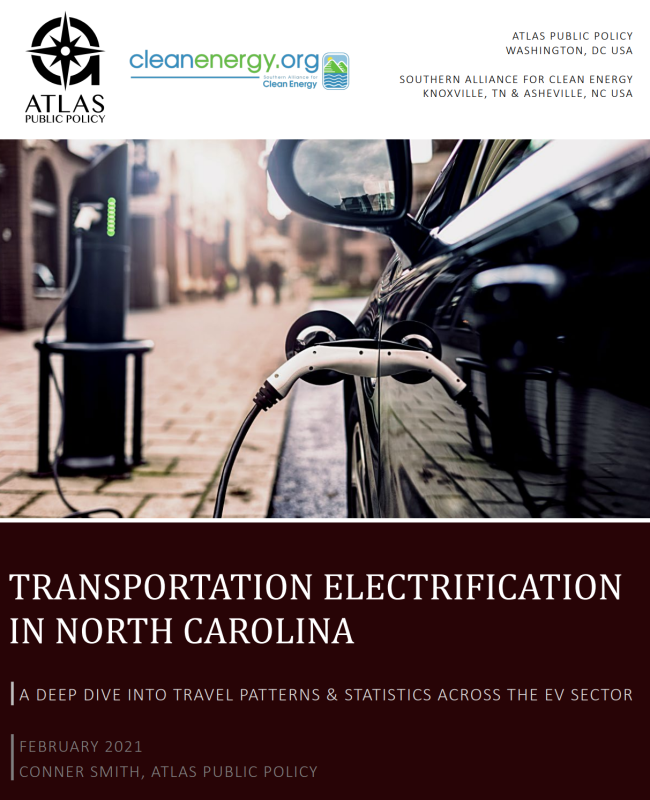Increased EV adoption across all vehicle classes is critical if North Carolina is to meet its transportation electrification and climate goals. On-road vehicles are the leading source of greenhouse gas and criteria pollutant emissions in the state and emissions from commercial vehicles in particular disproportionately harm marginalized communities.
North Carolina’s EV market has been trending in a positive direction since 2015 and while sales were down three percent nationwide between 2019 and 2020, North Carolina passenger EV sales grew by five percent. North Carolina has a strong policy framework under the North Carolina ZEV Plan and the ZEV bus and truck MOU that it can use to spur investment in manufacturing, create clean jobs, and rapidly electrify both public and privately-owned vehicles throughout the state. It also has $64 million in unspent Volkswagen Settlement funds that state agencies can deploy to facilitate the transition to EVs. Stakeholders in North Carolina can also draw support from electric cooperatives and utilities like Duke Energy to ensure all North Carolinians have access to affordable charging infrastructure and rates that help maximize fuel cost savings associated with driving an EV.
The urgency to invest in the clean economy has never been greater in light of the ongoing COVID-19 pandemic. This brief, “Transportation Electrification in North Carolina”, produced by Atlas Public Policy with support from the Southern Alliance for Clean Energy (SACE), provides an overview of the state of the EV market and deployment in North Carolina while also highlighting travel patterns and transit agency statistics, along with snapshots of EV policy and program examples from other states. Statewide transportation electrification roadmaps and funding available through the Volkswagen Settlement have generated momentum in North Carolina and can be harnessed to accelerate the EV market across the state and position it as a regional and national leader.
Preview the report here:
 Loading...
Loading...
More About this Resource
Date: February 18, 2021
Type: Research Reports
Tags: Charging Infrastructure, Electric Utilities, Medium- and Heavy-Duty, Public Incentives & Policies
Countries: United States
States: North Carolina
